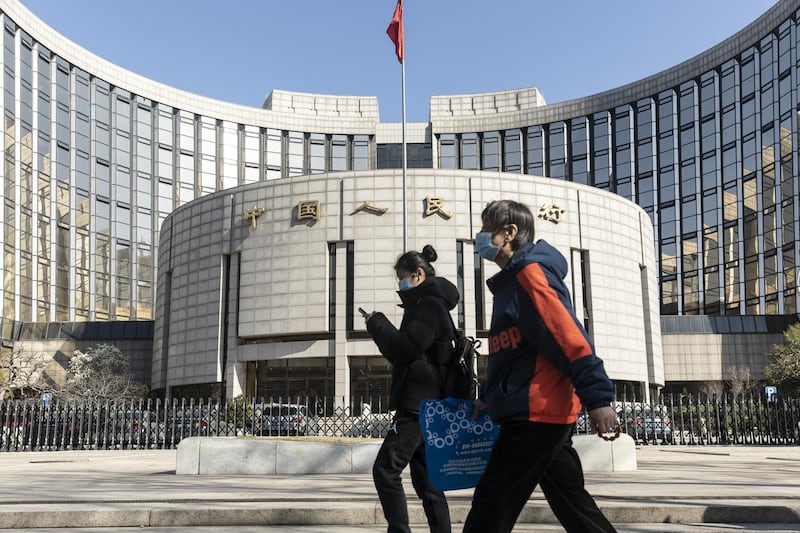The recession triggered by the outbreak of coronavirus is expected to be deeper than the one that followed the global financial crisis in 2008-09, according to a report from IHS Markit.
The report projected that real world gross domestic product could plunge as much as 2.8 per cent in 2020, compared with a drop of 1.7 per cent in 2009.
“Many key economies will see double-digit declines (at annualised rates) in the second quarter, with the contraction continuing into the third quarter,” IHS' economists Elisabeth Waelbroeck-Rocha and Nariman Behravesh wrote.
The assessment, based on major downgrades to forecasts of the US economy and a collapse in oil prices, presents a “much more pessimistic” outlook to the global growth than its previous forecast on March 17.
IHS also slashed the US 2020 growth forecast, predicting the world's largest economy could potentially contract 5.4 per cent based on recent developments and data.
“The risks remain overwhelmingly on the downside and further downgrades are almost assured,” IHS's economists said.
The coronavirus pandemic is the biggest challenge to the global economy since the 2008 financial crisis. The outbreak has disrupted trade, the travel industry and rattled investors, wiping about $20 trillion (Dh73.4tn) from stock markets globally.
The outbreak, which began in China, has now engulfed Europe and North America. More than 787,000 people have been infected and over 37,800 killed, according to Johns Hopkins University as of Tuesday. More than 166,000 people have recovered.
IHS also forecasts a gloomy economic scenario for a number of countries affected by the pandemic.
Canada's economy is estimated to contract 3.3 per cent this year, before seeing a modest recovery in 2021 due to a deep recession in the US and drop in oil prices, which are currently trading lower as a result of over production and weak demand.
Europe, where the number of infected cases continues to grow rapidly, will see "some of the worst recessions in the developed world". IHS forecasts real GDP drops of approximately 4.5 per cent in the Eurozone and in the UK. Italy will see a decline of 6 per cent or more.
In Japan, the postponement of the summer Tokyo Olympics will make the downturn even deeper with the economy contracting 2.5 per cent this year and a very weak recovery next year.
IHS projects a 2 per cent growth in 2020 for China, followed by a stronger-than-average rebound in 2021, due to its earlier recovery from the pandemic. China's economic activity is expected to have plummeted at a near-double-digit rate in the first quarter.
Growth in emerging markets will also be affected due to a rise in infections and a combination of other factors including a drop in commodity prices and global recession.
“It will likely take two to three years for most economies to return to their pre-pandemic levels of output,” the report noted.
“More troubling is the likelihood that, because of the negative effects of the uncertainty associated with the virus on capital spending, the path of potential GDP will be lower than before. This happened in the wake of the global financial crisis.”
A sizeable and aggressive policy response will help limit the downturn and help in economic recovery, IHS economists said. About $7tn has been committed by G20 nations so far.
Coronavirus: What is a pandemic?

The US Senate last week unanimously approved a $2tn rescue plan, the largest in the country's history, to help soften the impact of the coronavirus.
The UAE launched a stimulus package worth Dh126 billion to support the economy and help small businesses while Saudi Arabia, the Arab world's biggest economy, announced 120bn riyals (Dh117.3bn) worth of initiatives to mitigate the impact on its economy.
“We are beginning to see a much more effective fiscal and monetary response in recent days. While these moves are probably not big enough, they will act as circuit breakers and prevent the Covid-19 recession from becoming far worse," IHS economists said.







